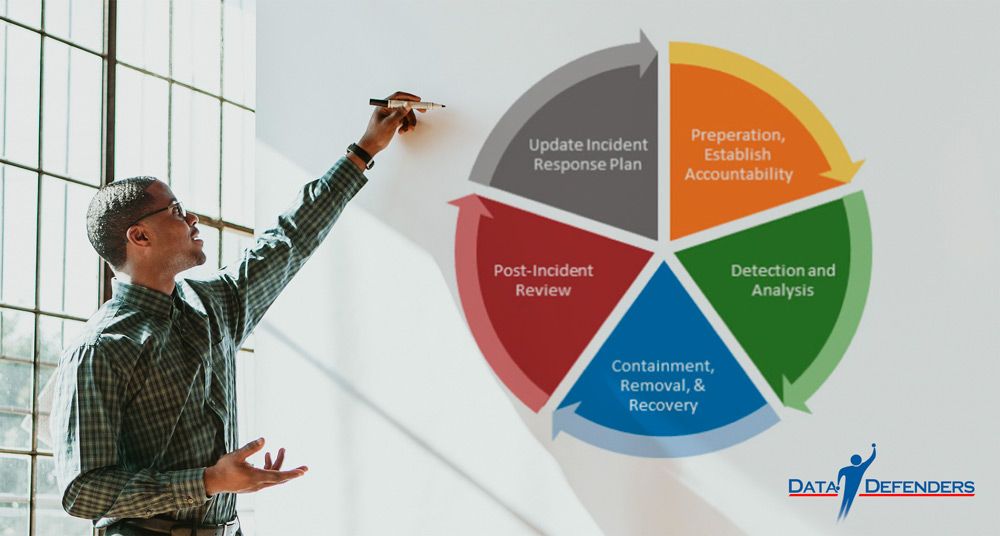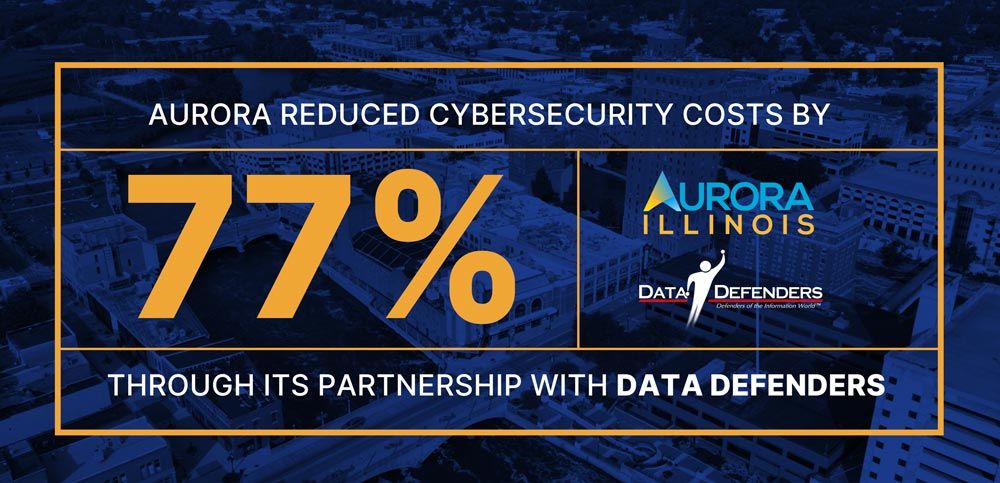Cybersecurity Best Practices for Municipalities: Safeguarding Critical Infrastructure
Introduction
In today’s interconnected world, municipalities face an unprecedented cybersecurity threat landscape. From water treatment facilities to public transport systems, critical infrastructure is under siege by increasingly sophisticated cyberattacks. The stakes are high: a single breach can disrupt essential services, compromise sensitive citizen data, and erode public trust. However, municipalities like the City of Aurora, IL, have demonstrated that proactive cybersecurity measures can effectively safeguard these vital systems.
This blog outlines actionable best practices for municipal leaders, nonprofit executives, and cybersecurity professionals to strengthen their defenses and protect critical infrastructure.
Prioritizing Cybersecurity for Public Services

Municipalities are responsible for delivering essential services such as emergency response, utilities, and transportation. Cyberattacks targeting these services can lead to:
Service Disruptions: Prolonged outages in water supply or public transport.
Public Safety Risks: Compromised emergency response systems.
Financial Losses: High recovery costs, as ransomware attacks cost municipalities an average of $1.85 million per incident.
Municipalities manage critical systems like emergency response, utilities, and transportation. A ransomware attack targeting these systems could lead to service disruptions, public safety risks, and financial loss. As highlighted in "The Rising Threat of Ransomware Attacks," ransomware can cripple small organizations and municipalities, causing average damages of $1.85 million per incident.
The Aurora Case Study demonstrates the value of proactive defenses. Aurora implemented DataShield Cybersecurity 360°® to secure critical infrastructure, including its water treatment facilities and traffic systems, reducing vulnerabilities significantly.
Overcoming Challenges with MCOP
Municipalities must take a proactive stance in defending their critical infrastructure against evolving cyber threats. Partnering with a Managed Cybersecurity Operations Provider (MCOP) like Data Defenders ensures a comprehensive, strategic approach to cybersecurity, rather than relying solely on ad-hoc measures.
Secure Your Municipality with MCOP

Cyber threats are increasing in both volume and sophistication—don’t wait until an attack disrupts your community. Engage with our MCOP experts at Data Defenders to access 24/7 security operations, expert guidance, and advanced threat defense solutions tailored to municipal needs.
Protect essential services, safeguard sensitive citizen data, and enhance your cybersecurity resilience today.
Conducting Risk Assessments

A thorough risk assessment is foundational to municipal cybersecurity. It involves:
Identifying Vulnerabilities: Reviewing systems for outdated software, weak passwords, and misconfigured networks.
Prioritizing Risks: Focusing on the most critical vulnerabilities.
Developing Mitigation Plans: Implementing policies and technologies to address identified risks.
A thorough risk assessment is essential for identifying and mitigating vulnerabilities. This process involves reviewing systems for weak passwords, outdated software, and other security gaps. As noted in Protecting Personal Data, assessing and addressing weak points is foundational to cybersecurity.
Aurora's example underscores this point. A detailed evaluation of its infrastructure revealed significant risks in its water treatment facilities. By addressing these vulnerabilities with the right solutions, such as DataShield Cybersecurity 360°®, Aurora built a more resilient framework.
Building Incident Response Teams

Incident response teams are crucial for minimizing damage during cyber incidents. Municipalities should:
Develop Clear Protocols: Outline steps for detecting, containing, and recovering from attacks.
Assign Roles: Define responsibilities for IT staff, public relations, and leadership.
Simulate Attacks: Regularly conduct drills to test readiness.
Cyberattacks require swift and effective responses to minimize damage. Incident response teams should have clearly defined roles and protocols. In "Emerging Cybersecurity Threats for Enterprises," the importance of rapid action and real-time monitoring was emphasized as a key defense against adaptive threats.
Aurora’s success in handling cyber incidents came from its partnership with Data Defenders, which provided clear protocols and 24/7 monitoring to mitigate risks.
Cybersecurity Awareness Programs

Municipal employees are often the first line of defense against cyberattacks. Training programs should focus on:
Recognizing Phishing Emails: Teaching staff to identify and avoid malicious links and attachments.
Safe Password Practices: Encouraging strong, unique passwords and regular updates.
Incident Reporting: Emphasizing the importance of reporting suspicious activity.
Employees play a critical role in municipal cybersecurity. Training programs that emphasize phishing detection, strong password usage, and incident reporting are vital. In The Rising Threat of Ransomware Attacks, employee awareness was identified as a critical defense against phishing, a primary delivery method for ransomware. Similarly, Protecting Personal Data highlighted how education helps employees safeguard their systems and accounts.
Aurora integrated awareness programs as part of its comprehensive approach, leading to reduced vulnerabilities and greater operational security.
Leveraging MCOP Support

MCOPs offer municipalities a cost-effective way to enhance cybersecurity. Benefits include:
24/7 Monitoring: Continuous oversight to detect and respond to threats in real-time.
Access to Expertise: Leveraging specialized knowledge to implement advanced solutions.
Cost Savings: Aurora reduced cybersecurity costs by 77% through its partnership with Data Defenders.
MCOPs provide municipalities with cost-effective access to expertise, advanced tools, and continuous monitoring. In the City of Aurora Case Study, partnerships with an MCOP were shown to reduce costs by as much as 77%, enabling municipalities to overcome budget constraints.
Aurora’s collaboration with Data Defenders exemplifies this approach. By outsourcing its cybersecurity needs, Aurora achieved robust defenses while cutting costs significantly .
Conclusion
Cybersecurity is no longer optional for municipalities—it is a necessity. By prioritizing cybersecurity for critical infrastructure, conducting risk assessments, building incident response teams, and leveraging expert partnerships, municipalities can effectively mitigate risks and safeguard public trust.
Protect your municipality’s critical infrastructure today. Contact our cybersecurity experts to learn more about solutions like DataShield Cybersecurity 360°®. For real-world inspiration, explore the Aurora Case Study and discover how proactive strategies transformed their cybersecurity posture.

